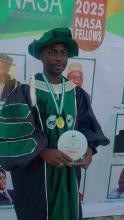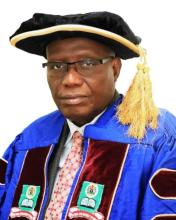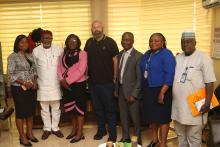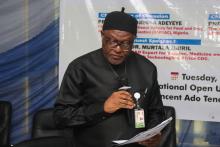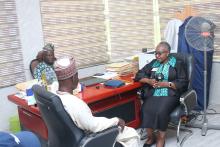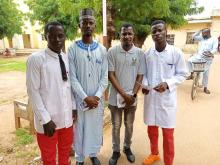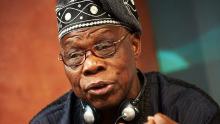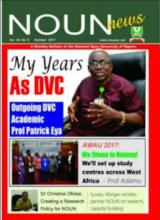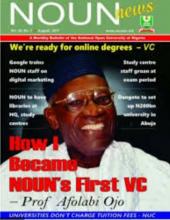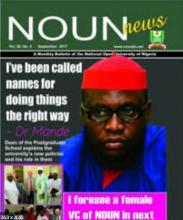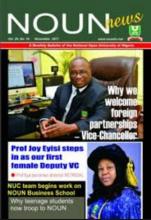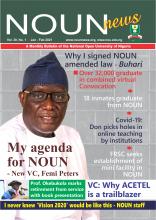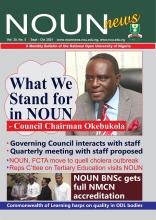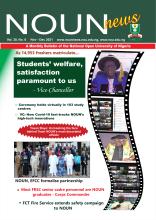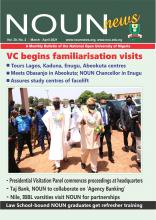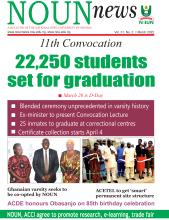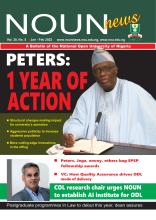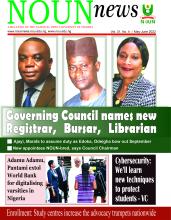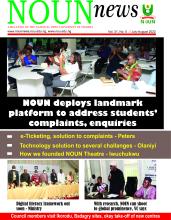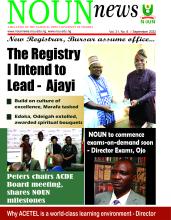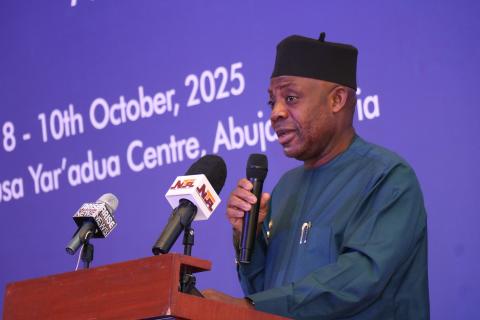
The National Open University of Nigeria (NOUN) Open and Distance Learning network is the second-largest in sub-Saharan Africa, even as the university is proudly an early adopter of Moodle at scale, Nigeria’s Minister of Education, Dr. Tunji Alausa, has said.
“With the second-largest open and distance learning network in sub-Saharan Africa, NOUN is setting the pace for educational innovation as this has been used to serve our diverse population across urban and rural areas in Nigeria,”the minister said.
Alausa stated this on Thursday, October 9, 2025 during the opening ceremony of the Moodle Moot Africa Conference 2025 organised by the National Open University of Nigeria (NOUN) at the Shehu Musa Yar’adua Centre in Abuja.
The conference organised under the theme: “Leveraging the Power of Disruptive Technologies for Africa’s Educational Transformation,” was described by the minister as very apt, as it underscored both the urgency of the current situation and the significant opportunities ahead.
“We are gathered here today to explore how open-source solutions like Moodle, an open-source management system has transformed learning globally—offering cost effectiveness, flexibility, local customization, hosting scalability and ownership to our educational institutions in Africa,” he said.
Alausa explained that disruptive technologies, such as Artificial Intelligence (AI), Machine Learning, and Digital Learning Platforms, could democratise access to knowledge, foster inclusion, and equip students with skills needed for the global economy.
The minister urged African universities and research institutions to adopt open-source learning platforms and collaborative digital tools to bridge educational gaps and reduce the digital divide between urban and rural learners.
He stressed that technology should be viewed as a partner in progress, and not a threat to traditional educational systems.
According to him, stakeholders across government, academia, and the private sector should work together in creating a technology-driven ecosystem that nurtures innovation, supports lifelong learning, and empowers Africa’s youth to compete globally.
Earlier in his welcome address, Vice-Chancellor of NOUN, Prof. Olufemi Peters, described MoodleMoot Africa as a platform that brings together academics, technologists, and innovators across the continent to advance inclusive, technology-driven education.
“This year’s theme is particularly apt because we live in an era where Artificial Intelligence, Robotics, the Internet of Things and Big Data are transforming every facet of our lives.
“Education cannot afford to lag. It must evolve, not as a passive consumer of technology, but as a creative force that shapes innovation for human development,” Peters said
The VC described Moodle as a bridge that connects learners across geographical divides.
“Through Moodle, we have seen technology not as a luxury, but as a bridge that connects rural learners to global classrooms, empowers teachers to become digital architects, and allows learning to flourish beyond the walls of any campus,” he said.
The Chairperson of the Local Organising Committee, Prof. Grace Jokthan, said the conference would spotlight Africa’s creativity in digital learning, with participants engaging on topics such as AI in Education, Learning Analytics, Cybersecurity, and Policy Frameworks for sustaining Moodle ecosystems.
On her part, the Deputy High Commissioner of South Africa to Nigeria, Lindi Mminele, while delivering a goodwill message, underscored the significance of digital transformation in closing educational gaps across Africa.
She commended the role of the Moodle Moots Africa Conference in bridging educational gaps through scalable and localised digital solutions.
“This conference plays a vital role in demonstrating how technologies like Moodle can drive scalable, inclusive, and contextually relevant learning experiences throughout the continent,” Mminele added.
- Log in to post comments
- 235 views

